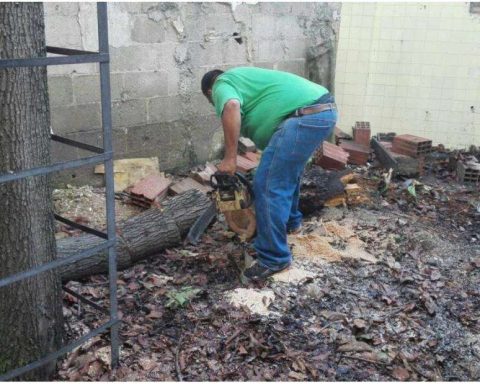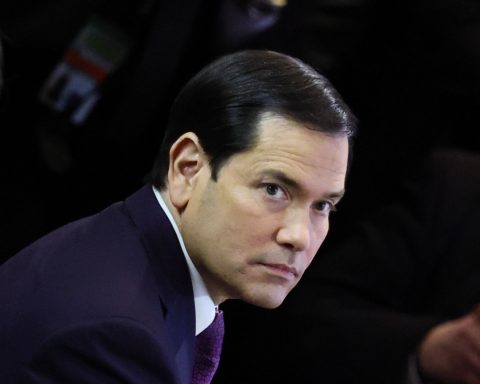That the five funds showed significant losses in September, including the least risky, is a fact that is already worrying for all the workers who contribute to the questioned individual capitalization system, including Carlos Bianchi himself, a deputy and former senator who , throughout his parliamentary career, has shown special concern for one of the most sensitive issues for ordinary citizens: pensions. But there is something even worse, such as seeing pension fund administrators (AFPs) withdraw profits despite the damage caused by their mismanagement. This is something that, in his opinion, definitely breaks all the limits of decency. “It’s kind of shocking. It really is intolerable, ”says the member of the House Finance Commission.
That is why the independent deputy of Magallanes presented a kind of “short reform” aimed at correcting, here and now, “some of the most unfair situations that we see in this matter”, Bianchi declares in an interview with The counterand that have nothing to do with the “long reform” that the Government is preparing, of which we only know big headlines, such as the additional contribution of 6% on account of the employer, a proposal that is already causing hives despite the fact that the project is still It is not dispatched for legislative processing.
You often talk about the injustices of the system that could be attacked now. What are those unjust situations that you notice in the current system and that urgently need to be corrected?
-There are many unfair situations, to tell the truth. Multifunds, for example. Having switched to the multi-fund system is something that has had an extraordinary effect on savers, since all responsibility was transferred to contributors and the AFPs were exempted, and this has generated one of the most negative effects of the system. This responsibility must be returned to the AFPs or to whoever the future administrator is. The other situation is related to the calculation made with the mortality table, which today is projected at 110 years. That’s absurd. It should be 85 years old, and if the person, congratulations, exceeds that threshold, then a survival insurance is applied. For every 8 million pesos, 1 UF of pension is paid, and we must reduce it to 5 or 6 million pesos to increase the amount of pensions. The system, in its origins, was committed to a replacement rate of 70%, and we are very far from that. Another great injustice is that we have two systems: one for the police and the Armed Forces and the other for civilians, and that is the most abusive, the most harmful, since it divides us and places Chilean men and women in different categories. Nothing justifies these situations.
What do these proposals that you have just announced consist of and that point to a greater degree of justice?
-We are proposing two very specific bills: one, that the AFPs cannot withdraw profits while the result of the individual accounts is negative, and the other is to seek civil liability for the damage they cause with their reckless management. They have to take responsibility for the losses. So far it doesn’t matter if they manage badly or well, because in the end all the responsibility falls on the people and nothing on the AFPs. The withdrawal of profits by the AFPs despite the fact that the system shows losses is a scandal and must end now.
He has been seen very active making proposals on pension matters.
-I have been active in this topic for more than 14 years. I already have to my credit two initiatives from when I was a senator to introduce more justice in this system, and which were copied by other parliamentarians and ministers. The first bill created a public pension system. There I made a mistake giving the title to the project because I was talking about a ‘public AFP’, and that was not the way to go; It was a public system. The IPS, former INP, was not structured throughout the country, but today the IPS does not require any new infrastructure and is in a position to become a body that competes with the private entity. Another thing: if in health and education one has a public alternative, why not in pension matters? We have only one possibility, which is to make an obligatory contribution to an AFP. This competition would do you good in terms of profitability. The other reform that I presented was that at the time of birth the person received from the State one and a half or two million in a public pension account.
Are you aware of the great lobbying power of insurance companies? And just as important as the above: is there a will in Chile Vamos to talk about these issues?
-We have to get everyone to the blackboard. It is necessary to make transparent which side each one is on. Are they there to defend the AFPs or simply to defend people from the abuses committed against them? I have no doubt. I think it is necessary to make this position transparent. And regarding the pressures, of course there is going to be a brutal lobby. I remember when the Fisheries Law was discussed, and there were two senators who voted against it, myself among them. You can’t imagine the threats I received. I had never seen it. The lawyers of the companies came to the Fisheries Commission itself to suggest things. It was the rudest and most horrible thing I have ever seen. I was even kicked out of the commission for voting against the famous ‘Longueira Law’, and I also voted against it in the room, so I wouldn’t be surprised at all to see pressure from the industry. Indeed we are going to have lobbyists and actors who are going to carry out the most incredible maneuvers to affect this discussion. Unfortunately, the Lobby Law is not very effective. But anyway… I would like people to see with their own eyes which side the right is on, with the AFPs or with the people.
Deputy Alberto Undurraga, from the DC, has presented the proposal of his bench in order of three principles. One of them is the freedom of choice to join the system you like best. Is he in favor of honoring the right to truly choose and enriching pension management alternatives for people, including alternative schemes to individual capitalization such as savings banks, cooperatives, etc.?
-We are aware of the suggestion made by the OECD in order to multiply the fund management mechanisms, incorporating savings banks, cooperatives, etc. One of the things that is ruled out is the return to the old system where there were countless boxes. I think there must be a public actor and there must be private actors, and insurers that are like the AFPs or with these AFPs under a new structure. There would be no problem, but with the competence of a public actor. I am absolutely in favor of each person choosing where to contribute, and making the decision freely. I am absolutely against a person being forced to be in a system. You have to see a free choice. Definitely.
What happens to retirees who report having experienced a significant drop in pensions as a result of losses? Is there no way to “freeze” or stop investing a person’s funds once they decide to retire?
-This is terrifying. It is violent, outrageous… it is repulsive… I could actually add other terms, because here there is harm to the human person. This system became a machine for grinding decency and humanity. There has been tremendous damage. We have to find a mechanism that at the time of retirement the contributor no longer has any more losses. Let’s see what happens with the insurance companies, which, unlike the AFPs, pay the monthly payment in UF. Perhaps we should look for mechanisms that do not pay pensions in pesos, but in UF, and look for a mechanism so that in the event that they go bankrupt or have difficulties, the State is a guarantor so that the person is never affected. But since the system today frees the AFPs from responsibility, then it doesn’t matter if they are losing money. That’s why it’s necessary to freeze the amount of money you have in your savings account at retirement. Another thing: one of the biggest problems is that year after year they recalculate pensions and these go down. And that also we must correct.
What do you think of Minister Marcel’s reform?
-I wouldn’t want to do science fiction because we don’t have a final proposal. That people should know. We cannot initiate a serious and responsible debate regarding this reform. One of the topics that is going to be discussed the most is the additional 6% as a contribution from the employer, and on the other hand, how much of that will go to individual capitalization and how much to the solidarity fund. Given the tremendous damage that all Chileans have suffered, I think that 6% should go directly to people’s savings. If not, what we are doing is a new employer tax. From now on I announce that I will reject this proposal as discussed and I will propose that the solidarity fund be financed by the State and I will also ask to add other measures, such as contributing a million and a half to the person when they are born so that it is administered by a public institution. But I repeat: we are not aware of Minister Marcel’s proposal.
What does that discussion look like? What do you think will come out of Congress?
-I think there is a clear will to talk because we know that the issue of pensions worries the public. Surely we are going to add indications such as the possibility of having an interest-free self-loan for housing, health issues… in short. But beware: money has to come back because its essential objective is to pay pensions. But we will have to talk. In fact, the tax reform introduced by Minister Marcel has nothing to do with the reform that we are introducing in the coming weeks. It has changed enormously, and it is the same thing that is going to happen in the pension reform.


















